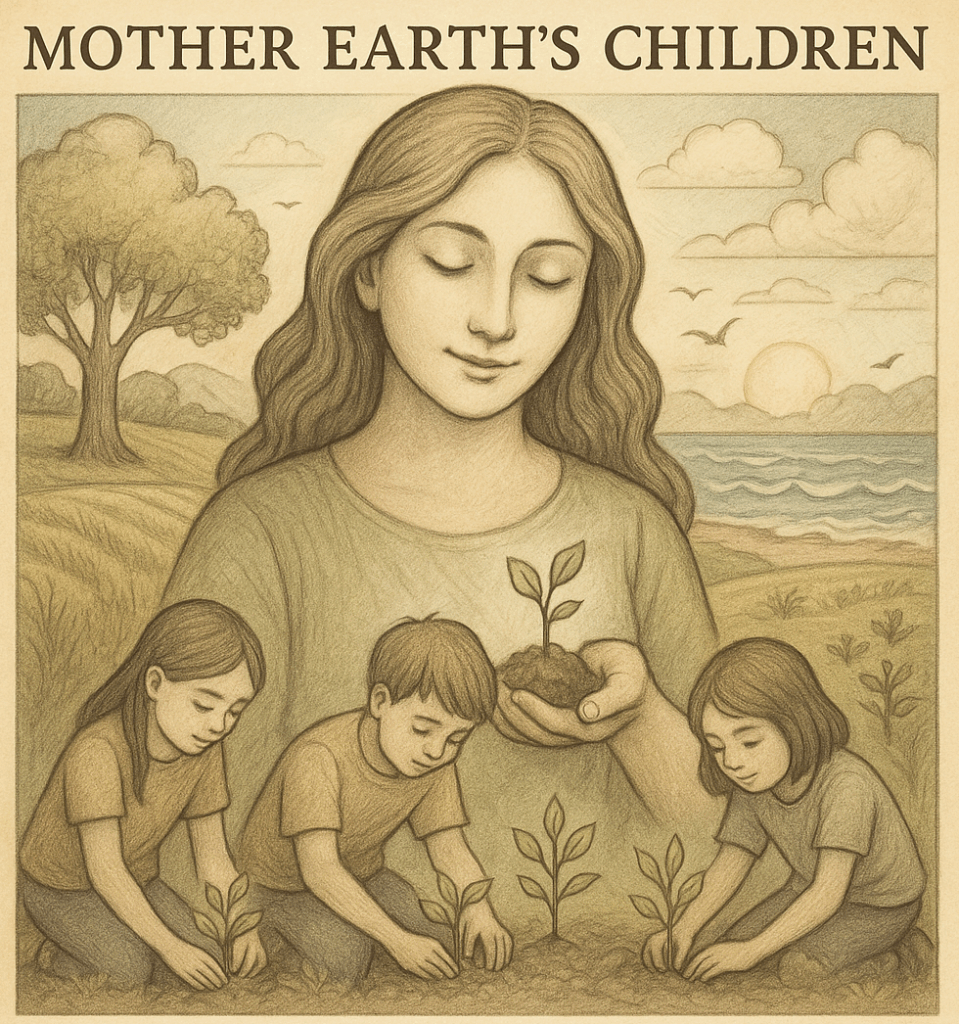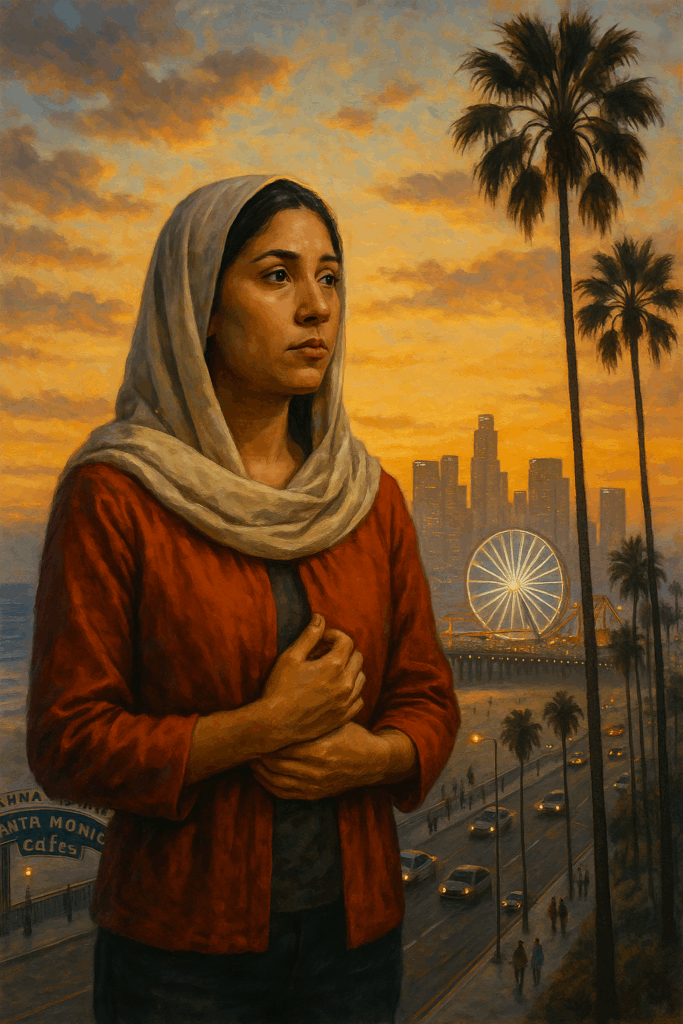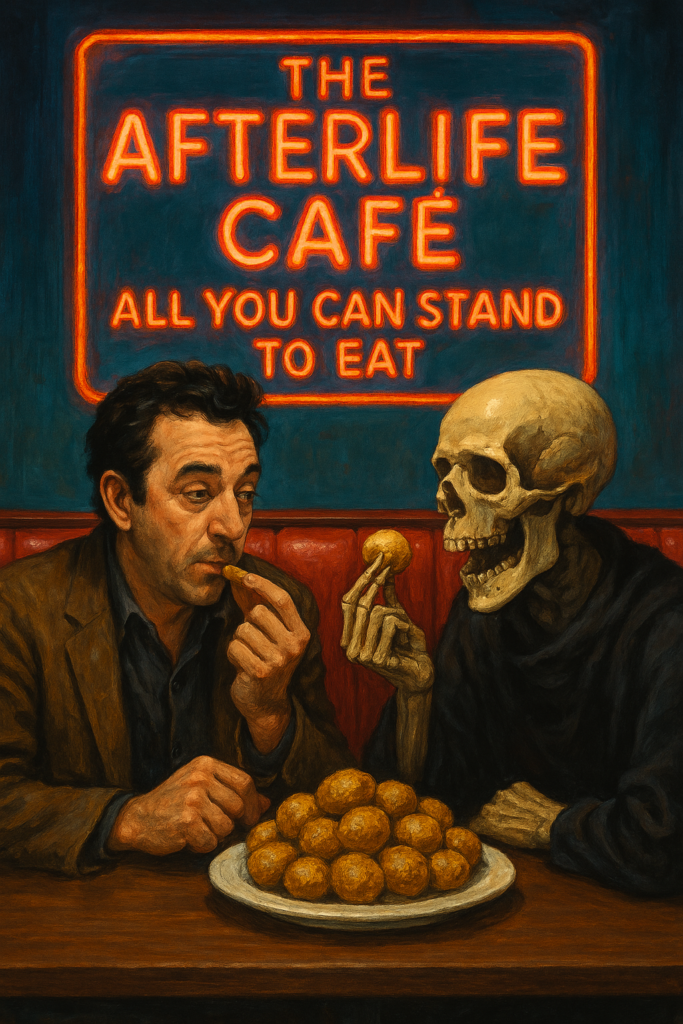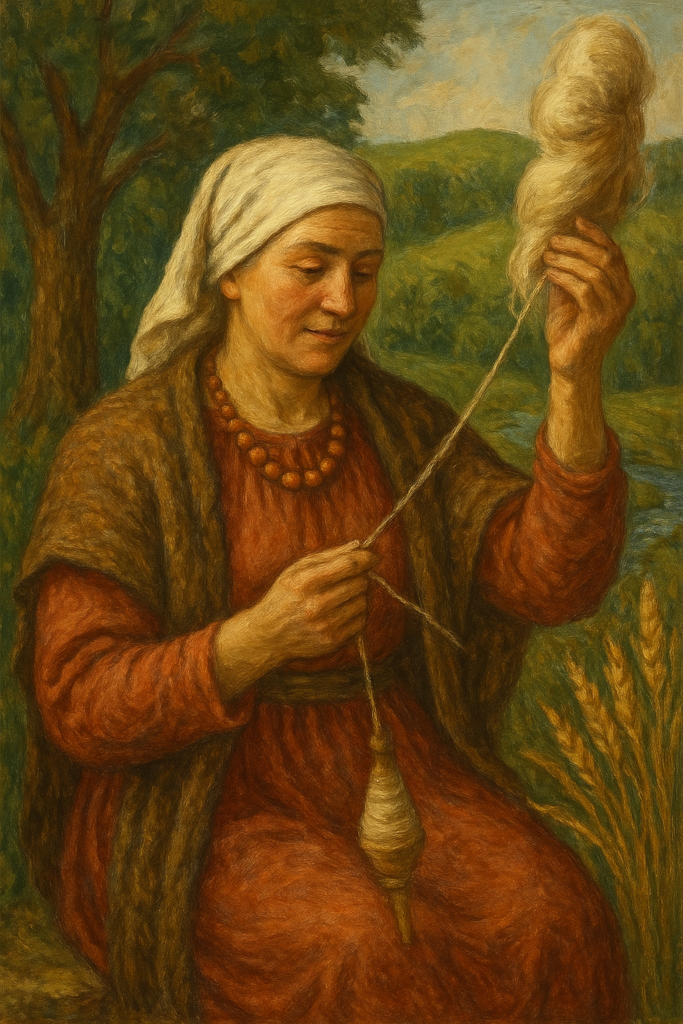I like to play with words; the Word is God
They say, “You play with God? That’s fucking cool!”
I guess you’d say by words at times I’m awed
At times I’m awed and odd. At times, a fool
The fool is wise when words ae more than true
What’s more than true, you ask? I’ll tell you this
The Word is like the Monkey in a zoo
The Poem is the cage where It finds bliss
So God’s a Word and poetry’s a cage?
The poet can be odd and awed at once?
I’ve also heard it said, the world’s a stage
At least it isn’t school. I’m not a dunce!
Reality is often most absurd
And Fantasy’s fantastic! There’s a Word.
Words (Again)
May 12th, 2025A Little Song of Cunnilingus
April 28th, 2025
I sing of cunnilingus ‘twixt your thighs
My tongue knows where each silver note belongs
And when I pause, look up into your eyes
I watch you feel the joy of all my songs
Each iamb of each lyric draws the sound
Of depth that seems to linger deep within
Like gentle joy where life is often found
A sonnet so expressed is not a sin
The song of cunnilingus should be sung
In labial expressions meant to please
In cyclical expressions of the tongue
Like angels voices on a zephyr’s breeze
The song of cunnilingus greets the dawn
Like sunrise when the dark of night is gone.
Mother Earth’s Children
April 21st, 2025
We need to stop pretending we’re in charge
Like children disregarding Mother Earth
There must be fields of good we can enlarge
Like planting tiny seeds of noble worth
The worth of noble oceans, lands, and air
Enrich our lives with calls for noble use
In all we do we need to show we care
The care we show should always be profuse
Profusion can be big or little acts
As long as we’re consistent with our deeds
Our Mother Earth revolves, responds, reacts
She knows how to fulfill our simple needs
We need to breathe, to eat, to drink, to live
And Mother Earth needs noble souls who’ll give.
Santa Monica
April 19th, 2025
Saint Monica, the mothers' patron saint
A mother who is silent in her grace,
whose prayers rise up through centuries’ complaint,
whose hopes endure in troubled time and space.
And now a place southwest of Hollywood,
a place that knows the ocean’s primal kiss,
where palms reach high in solemn brotherhood,
and grief is baptized gently into bliss.
She stops to watch the angels to the east—
Los Angeles, where entertainment reigns—
a city crowned in hunger and in feast,
where fame burns fast and leaves forgotten stains.
But still she prays beneath the coastal skies,
for every mother's silent, sacred cries.
Testicle Spectacle
April 14th, 2025
A one-minute absurdist play featuring Lenny Bruce and Yorick in a cosmic diner beyond time.
[Setting: A red-vinyl booth in “The Afterlife Café.” Neon sign flickers above: “ALL YOU CAN STAND TO EAT.” A plate piled high with Rocky Mountain oysters sits between them.]
YORICK
(leaning back, skull under one arm)
Though I have no tongue, I’ve tasted eternity. You think I fear a plate of bovine baubles?
LENNY BRUCE
You don’t taste anything, bone-boy. You remember flavor like a Catholic remembers sin. Me? I digest the moment.
YORICK
Ah, but digestion is but the soul’s lament—
for what it couldn't keep.
LENNY
You ever bomb at the Hungry i with a gallbladder full of bull-nuts? That’s transcendence, pal.
YORICK
I once out-ate Falstaff at a Tudor wake. He wept and declared me kin.
LENNY
You got no stomach! You’re a prop from a play with daddy issues!
YORICK
You’re a prophet with indigestion!
[They each grab an oyster and eat in unison. Silence. Then—]
LENNY
How many’s that?
YORICK
I've lost count. And also… my dignity.
LENNY
I lost that in '62. Keep chewing.
[Lights dim. The neon flickers once more: “ALL YOU CAN STAND TO EAT.”]
End.
Mokosh, the Weaver of the Hidden Thread
April 12th, 2025
She walks where rivers bend and willows lean,
With soil-stained hands and eyes as dark as rain,
Her breath is stitched through fields of gold and green,
She bears the bloom, the burden, and the grain.
No throne of stars, no crown of forged delight,
Yet all the living know her by her name;
She spins the dusk into the cloth of night
And warms the fire that births the morning flame.
The roots remember her where feet once fell,
Each mother’s whisper, each unspoken vow;
She binds the fates in flax and holy well,
With blessings pressed to every furrowed brow.
Though gods may rise and fall in endless tide,
The Earth remains—with Mokosh at her side.
A Camp Sonnet
March 16th, 2025A sonnet is as camp as you can get,
When writing any form of poetry.
Bill Shakespeare wrote a lot, lest we forget,
When camp became to be or not to be.
The drama, darling! Gowns and powdered wigs,
A tragic monologue with flair divine!
Soliloquies are served with dainty jigs,
And metaphors more extra than good wine!
Oh, couplets strut like queens upon the stage,
Iambs in heels, pentameter in lace!
Each stanza vogues, dramatic, bold, and sage,
With wit as sharp as blush upon the face.
So snap your fan—let folly take the stage,
For camp and sonnets live beyond their age!
Conference on Domestic Cats in Literature
February 28th, 2025Why I Don’t Worry About AI
February 28th, 2025AI will never know a lover's kiss
Nor understand just why a heart can break
Its ones an zeroes aren't a perfect bliss
They can’t eat bread nor can they eat their cake
A cake of ones and zeroes has no taste
And yet I know that it must taste like shit
AI must think dichotomy’s a waste
Let’s feed it that and watch it choke on it
AI cannot write poetry, you see
Because a poem’s more than simple words
A poem must be felt to truly be
And ones and zeroes are just little turds
Don't eat the shit that AI wants you to
AI is just ai, but you are YOU.
The Airborne Valor of Roland Bragg
February 11th, 2025
Through fire and frost, where war-torn echoes rang,
An airborne soul leapt fearless through the fray.
With courage forged where battle’s fury sang,
He braved the Ardennes' night in steel and gray.
Upon the field where death and valor crossed,
He seized an enemy’s forsaken keep—
A stolen ambulance at fateful cost,
To save a friend from war’s unyielding reap.
Yet home he came, with steady, calloused hands,
To build, restore, and shape the world anew.
He moved great halls, he worked the sea and lands,
A life well spent in labor strong and true.
Now stands his name where warriors convene,
A fort, a tale, a legacy unseen.
